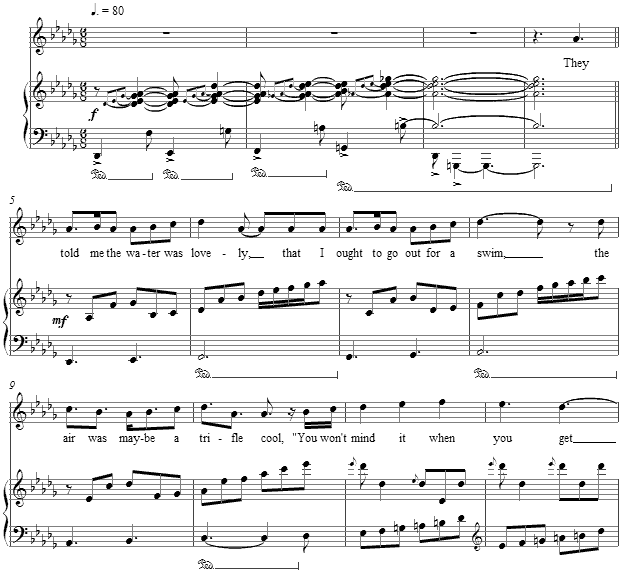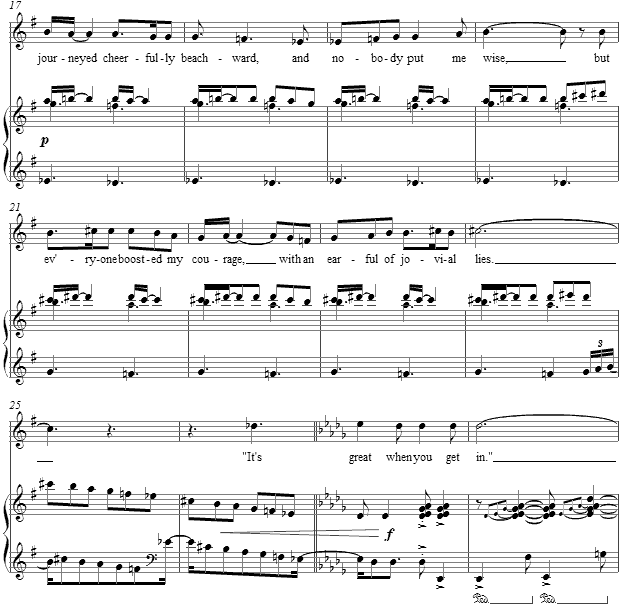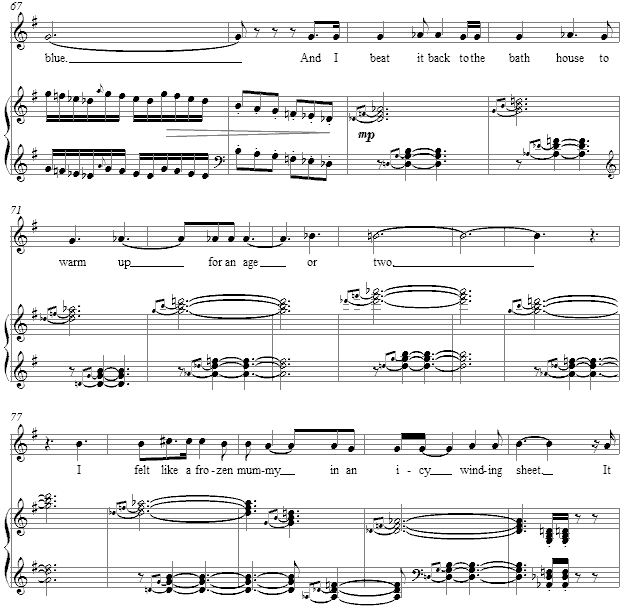Music and Texts of GARY BACHLUND
Vocal Music | Piano | Organ | Chamber Music | Orchestral | Articles and Commentary | Poems and Stories | Miscellany | FAQs
It's Great When You Get In - (2008)
Eugene O'Neill
for medium or high voice and piano
They told me the water was lovely,
That I ought to go for a swim,
The air was maybe a trifle cool,
"You won't mind it when you get in"
So I journeyed cheerfully beach-ward,
And nobody put me wise,
But everyone boosted my courage
With an earful of jovial lies.
The Sound looked cold and clammy,
The water seemed chilly and gray,
But I hastened into my bathing suit
And floundered into the spray.
Believe me, the moment I touched it
I realized then and there,
That the fretful sea was not meant for me
But fixed for a polar bear.
I didn't swim for distance
I didn't do the crawl,
(They asked why I failed to reach the raft,
And I told them to hire a hall.)
But I girded my icy garments
Round my quaking limbs so blue,
And I beat it back to the bath house
To warm up for an age or two.
I felt like a frozen mummy
In an icy winding sheet.
It took me over an hour
To calm my chattering teeth.
And I sympathized with Peary, [ 1 ]
I wept for Amundsen's woes,
As I tried to awaken some life in
My still unconscious toes.
So be warned by my example
And shun the flowing sea,
When the chill winds of September
Blow sad and drearily.
Heed not the tempters' chatter
Pass them the skeptics' grin
For the greatest bull that a boob can pull [ 2 ]
Is "It's great when you get in."[ 7 pages, circa 3' 30" ]
Eugene O'Neill
As a contrast to my setting of O'Neill's A Regular Sort of a Guy, this whimsy tells the end result of some pranksters' games and the advice to skepticism -- advice worth heeding in any age and circumstance.
The setting swings between D flat and G major, though much in each relates to the other tonal region by the use of whole tone scales. Underneath the 4-2 suspended tonic, a bass gesture walks upward by whole tones. The fulcrum of whole tones drives the ending of the stanza from D flat to the new signature of G major.
The tale is furthered by abandoning the opening statements in favor of a Scotch snap rhythm to underscore the unaware victim's march to his fate, which O'Neill describes with words such as cheerful and courageous, though in fact these are overstatements contrary to the ordinariness of the situation. Nevertheless, "lies" quite adequately describes the faux encouragement which urges the situation to its irritating yet comic end; it has been said that in all comedy there is some tragic element, just as in all tragedy there is found some comic perspective.
The two tonal regions, D flat and G, become united in underpinning the remainder of the tale, wherein the outcome is a combination of both comic and tragic experiences, all defined by the perception of each individual.
The score for It's Great When You Get In is available as a free PDF download, though any major commercial performance or recording of the work is prohibited without prior arrangement with the composer. Click on the graphic below for this piano-vocal score.



